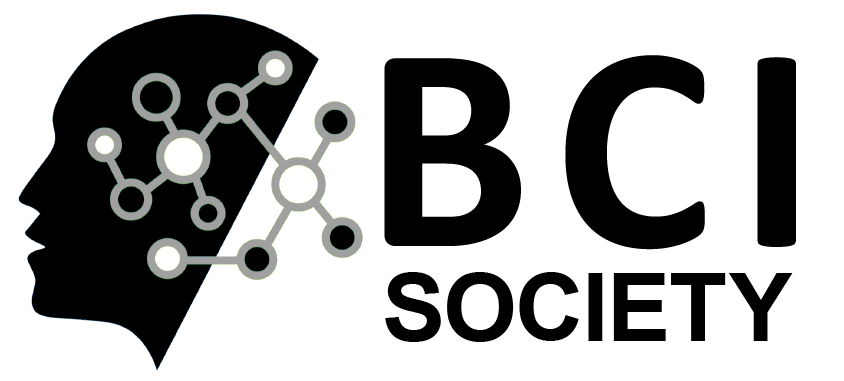Trainee Collaboration Projects
To carry out the BCI Society’s commitment to young investigators and to create a more involved and long-lived Society membership, we are launching a Trainee Collaboration Projects program to support students and postdocs from different laboratories and disciplines working cooperatively on BCI-related projects.
Each BCI Society student and postdoc member can pitch a project by February 15, 2021. For example, “the implementation of a novel P300 speller based on a publicly-available dataset of EEG recordings”. From the proposals, the BCI Society will select a few projects. All BCI Society student and postdoc members will have the opportunity to join a proposed project, providing the missing skills for its success. The BCI Society will form the teams based on the needed skills, and assign each team a mentor, who will oversee the group effort and virtually meet with the team at least 4 times per year.
Teams will work throughout the year, and will have the chance to present their plans / results at the virtual Annual Meeting (vBCI) scheduled June 7 – 9, 2021. The mentor will guide the team to publish the findings of the project in a special issue of the BCI journal.
If you are not a current student and postdoc members but desire to propose or join a project, please see how to renew or join the BCI Society here. Membership in the BCI Society is open to all students and post docs from around the world involved in the many research and practical aspects of BCI research.
Trainee Collaboration Projects: Join a team
We selected 3 projects amongst those proposed by its members. More details on each projects are available.
All BCI Society student and postdoc members are invited to join a team.
Project 1: Inferring Intent from EEG using Discriminative Neural Networks
Proponent: Niklas Smedemark-Margulies
Description: Individuals with severe speech and motor impairments can benefit from augmentative and alternative communication systems. BCI designs which measure sequential stimulus-evoked brain responses through EEG can be effective in inferring human intent in such settings. Matrix Speller and RSVP Keyboard are well-established examples of such designs. In these systems, we begin from a language model prior, and gradually accumulate evidence from the user’s responses. We can use recursive Bayesian updates to maintain an estimate of the posterior distribution of the user’s intended symbol. Baseline methods for this problem use a generative modeling approach to assess the likelihood of possible symbols given EEG evidence. The drawback of this approach is the difficulty of modeling high-dimensional EEG data, which necessitates decomposing the data into short windows of time and assuming independence between adjacent time windows. Therefore, we propose to perform this recursive Bayesian update by using a discriminative neural network applied to entire sequences of EEG data. In this way, we avoid making any assumptions of independence between consecutive time points, and make inferences from the full original data dimension.
Research Questions: We seek to evaluate whether a discriminative modeling approach can outperform a generative modeling approach for inferring user intent from EEG in a recursive Bayesian inference setting.
Needed Skills: Clinician, Neural Engineer
Project 2: Joint Bayesian Artifact Removal and Intent Inference for BCI
Proponent: Basak Celik
Description: BCIs based on EEG can be used to infer user intent for various applications, including expressive language generation through letter selection. Typical users of such assistive technology interfaces may have conditions that lead to interference signals generated by muscles or external devices, which superimpose as artifacts on their brain activity captured by EEG. Such artifacts may significantly reduce the accuracy of intent inference from EEG in these systems. Therefore, it is important to correctly assess the quality of the EEG signals, and remove artifacts where possible. The issue of noise and artifacts is traditionally approached by completely separate stages for filtering and inference. Such a static filtering approach may be considered as a point-estimate of the ideal denoising procedure. We propose to replace this point estimate approach with a probabilistic model of the denoised data, such that we can sample the distribution and take a Bayesian approach to subsequent intent inference tasks. There is a large space of model architectures and training objectives to be explored as the denoising model, including Variational Autoencoders and Invertible Neural Networks.
Research Questions: Can a Bayesian approach to artifact and interference filtering improve subsequent intent inference, as compared to a point estimation approach to filtering?
Needed Skills: Machine Learning, Neural Engineer
Project 3: The effect of bone conduction auditory stimuli on the performance of EEG-Biometric
Proponent: Nibras Abo Alzahab
Description: This project aims to investigate the auditory-stimuli EEG-Biometric by comparing the effect of ear-conducting auditory stimuli and bone-conducting auditory stimuli. The project will be conducted as follows: 1- preparing the experimental setup 2- collecting ear-conducting auditory stimuli data and bone-conducting auditory stimuli. 3- Building a machine learning model (or deep learning) to classify the data according to the subject (Target). 4- Compare the performance of the two systems This project will open the door for future innovations that are based on advanced biometrics and require authentication.
Research Questions: Is bone-conducting auditory stimuli as effective as ear-conducting auditory-stimuli in EEG-Biometric systems?
Needed Skills: Machine Learning, Neural Engineer
Propose a Project
To propose a project, click button below. The deadline is
February 15, 2021. CLOSED.
Join a Project
To apply for a project, click button below. CLOSED.
Participate as Mentor
If you are interested in being a project mentor, click below. We welcome all BCI researchers and clinicians.
Timeline
Project proposal deadline: February 15, 2021
Project selection: February 17, 2021
Project application: February 22 – March 12, 2021
Project team confirmation: March 15, 2021
Project kick-off team meetings: April 8, 2021
Project update meetings: Sep 2021, Jan 2022, May 2022
Project presentation at the BCI International Meeting: June, 2022
Contact
Please contact TraineeProjects@bcisociety.org if you have any questions
